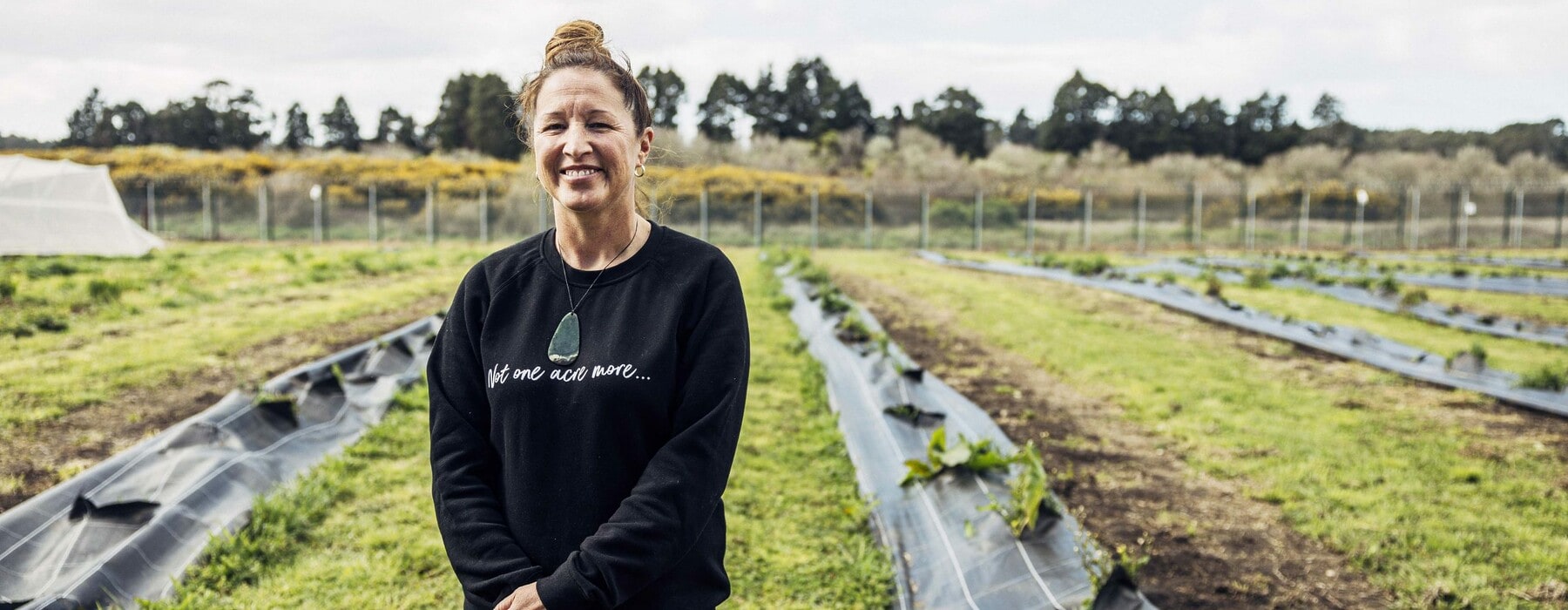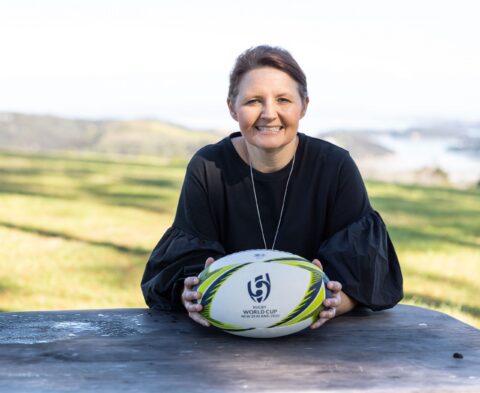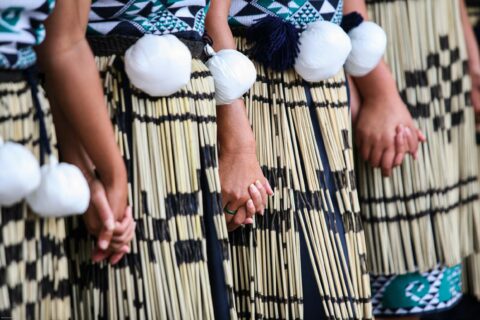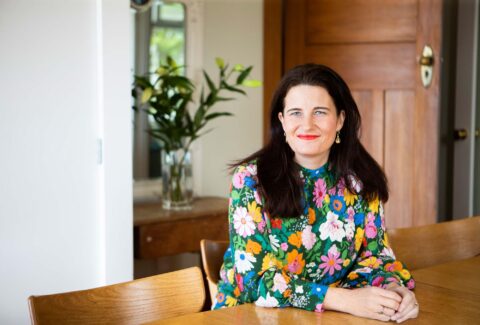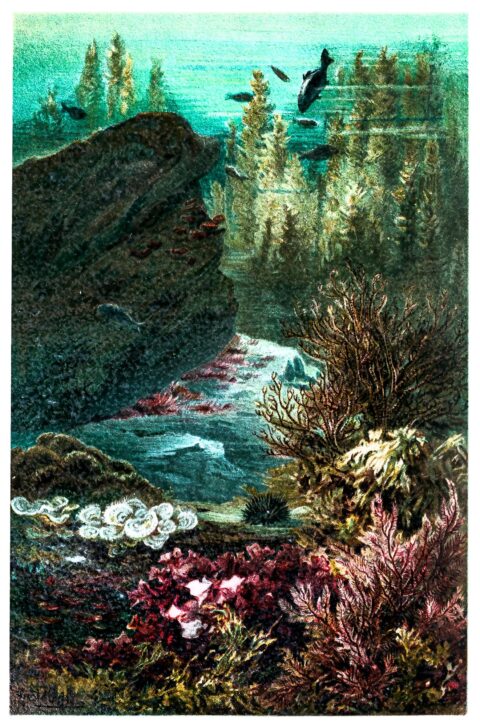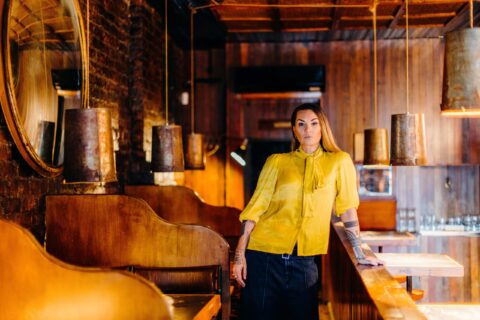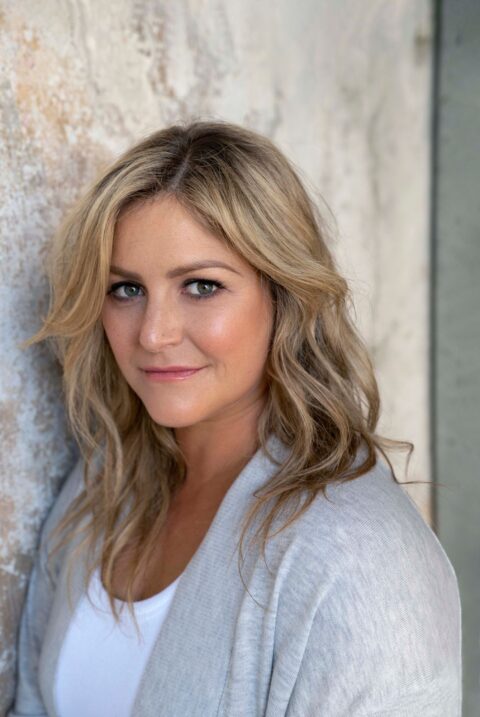Aimee Armstrong and her partner Jason Murray are the chief growers for Eqalis and run a native nursery on on Matakana Island in the Bay of Plenty.
Aimee has 15 years of experience in the horticultural industry, a degree in geography and Māori development, and a focus on the environment, conservation and rongoā Māori (traditional Māori medicine).
For the couple, growing cannabis for medicine was a natural progression in their business, but it was also personal.
“We saw through whānau that all those other pharmaceutical pills were just not working or had side effects that were so horrific. You have to take a pill to counteract the side effects of the other pills, and our nannies and koros are taking 10-12 pills a day,” says Aimee.
They had heard about the effects of medicinal cannabis overseas, but more importantly, had seen people they knew turning to cannabis and finding effective relief.
“When people have cancer and don’t have long to live, it’s helping quality of life, and end-of-life care, instead of being zonked up on morphine and not being able to interact with their whānau, or being able to feel good within themselves. To spend quality time with their whaānau in their last days, that’s massive for us,” Aimee says.
She’s always been focused on helping her people. It’s how the nursery, Mahana Island Therapies, started.
Jason is from Matakana Island, and after the pair finished uni, they made it their home. At that time, there were only a few industries – mainly forestry, farming and orchards – and the local mill, which was the island’s largest employer, had just closed down, forcing many to relocate to the mainland to find work.
Aimee and Jason knew they had to make their own living and wanted to do something that would benefit the island while providing employment for others. With a keen passion for conservation and native plants, they launched the nursery in 2005 under a charitable trust dedicated to their community.
In 2019, when they started talking about cannabis for the first time, it was “just a natural flow on”.
“It was a perfect fit for us; utilising the skills of the community and utilising the island for security, and helping to diversify the industries and employment opportunities to support whānau and provide meaningful jobs,” says Aimee.
They approached Eqalis “to see if they were good people we could work with”, and found they had the same ideals.
“It wasn’t just about making money. It was about providing good medicinal products and for everyone – not just those that can afford it. At the moment people are paying like $400 every month, and we’re wanting to drive the price right down so that all our whānau and all our people who need it can afford it.”
They spent a good year or so building their one-hectare compound with all the legally-required security measures, such as proper double-barbed wire fencing and a full surveillance system. There are also regulations around how they grow, including avoiding certain herbicides and pesticides, and the seeds they’re allowed to import; they aren’t allowed to grow from the New Zealand gene pool of seeds, and only a few overseas suppliers are approved.
“New Zealand’s rules would be some of the toughest rules globally, which makes it harder. But it makes it a really top- quality product too, so you can trust what you’re using. It’s making sure we have a product that’s going to really help people, rather than people putting out something of lower quality just to make a whole lot of money from it.”
In future, Aimee and Jason have big plans. Their dream is to develop local seed strains to get a wider variety of plants, and therefore the different terpenes they contain, so they can start growing for different treatment purposes. And the ultimate goal is to start combining cannabis with rongoā Māori.
“It’s finding the different herbs and what works best together, depending on what you’re trying to treat,” says Aimee. “It’s trying to connect people back to nature. Most pharmaceutical drugs are synthetic versions of what’s in nature, so why wouldn’t you just use the real stuff and rongoā Māori to help people on a higher level as well, rather than just trying to treat the problem?”
At first kaumātua on the island “hated” the idea of Mahana growing cannabis there, because they were focused on the negative impact marijuana has had on their people and the effects of smoking it.
“But as they started learning about the medicinal side of it, they were more open to it. I think people are really starting to open their eyes to the amazing medicinal properties of cannabis because it treats so many diseases and ailments. It’s quite remarkable,” says Aimee. “So now our kaumātua and kuia have been really supportive, especially because we feature so high in New Zealand’s health statistics, and if we can stop nanny from taking 12 pills a day and just having one thing – a natural thing – that can only be good for our people.
“With climate change and everything like that, I think people are starting to come back to the natural world and for me, that’s what healing is; reconnecting people with the land, with nature.”

